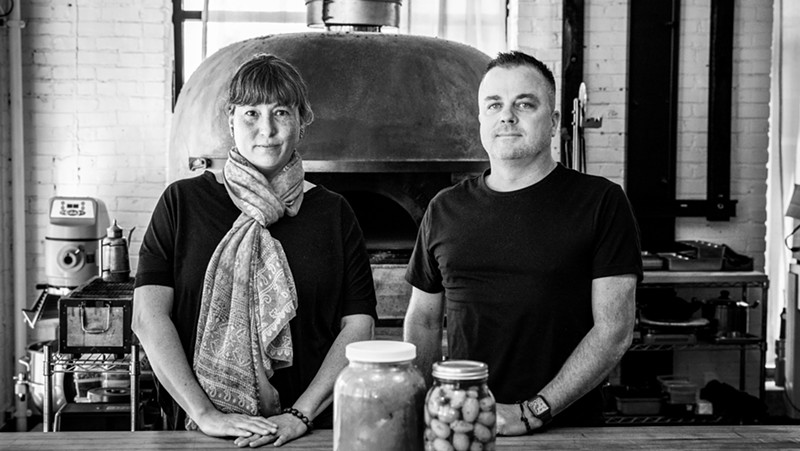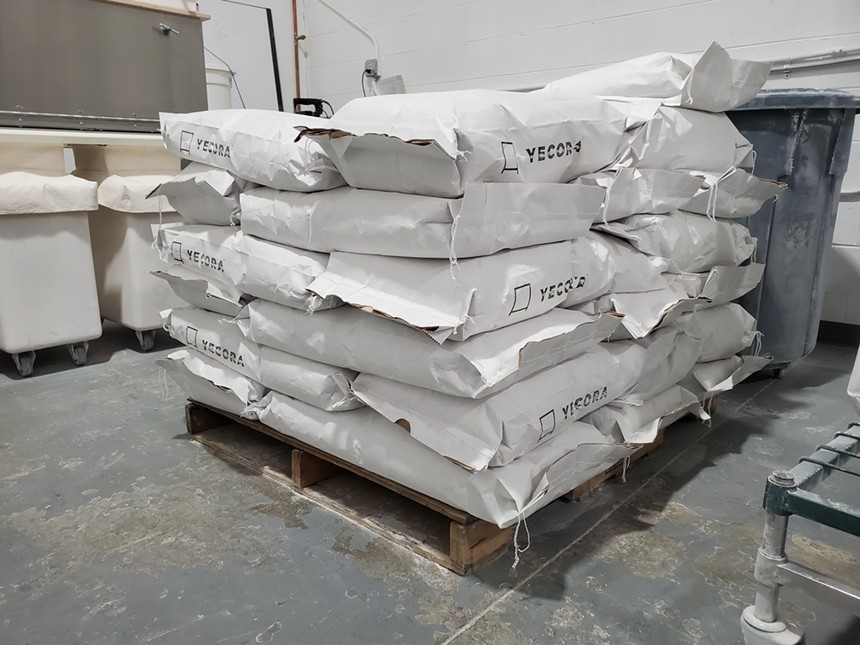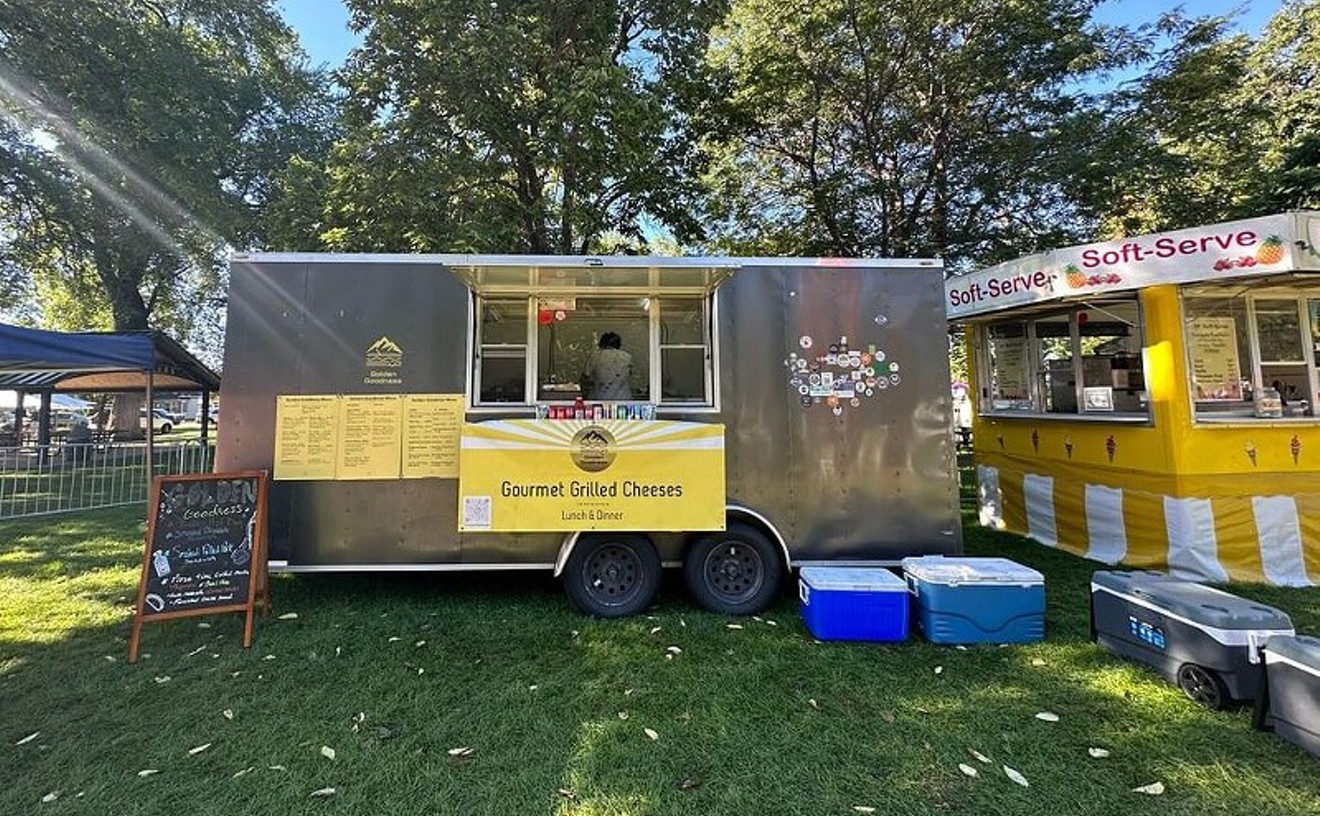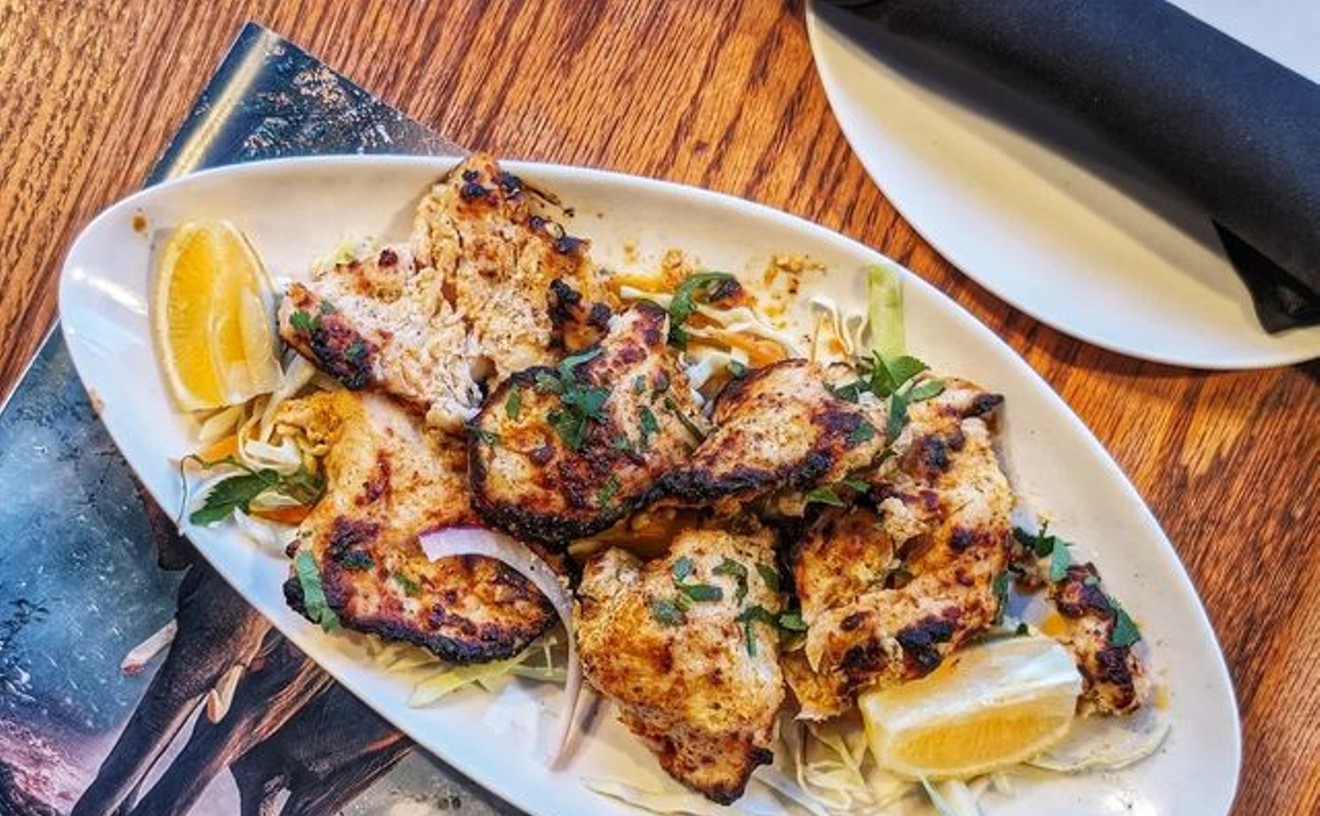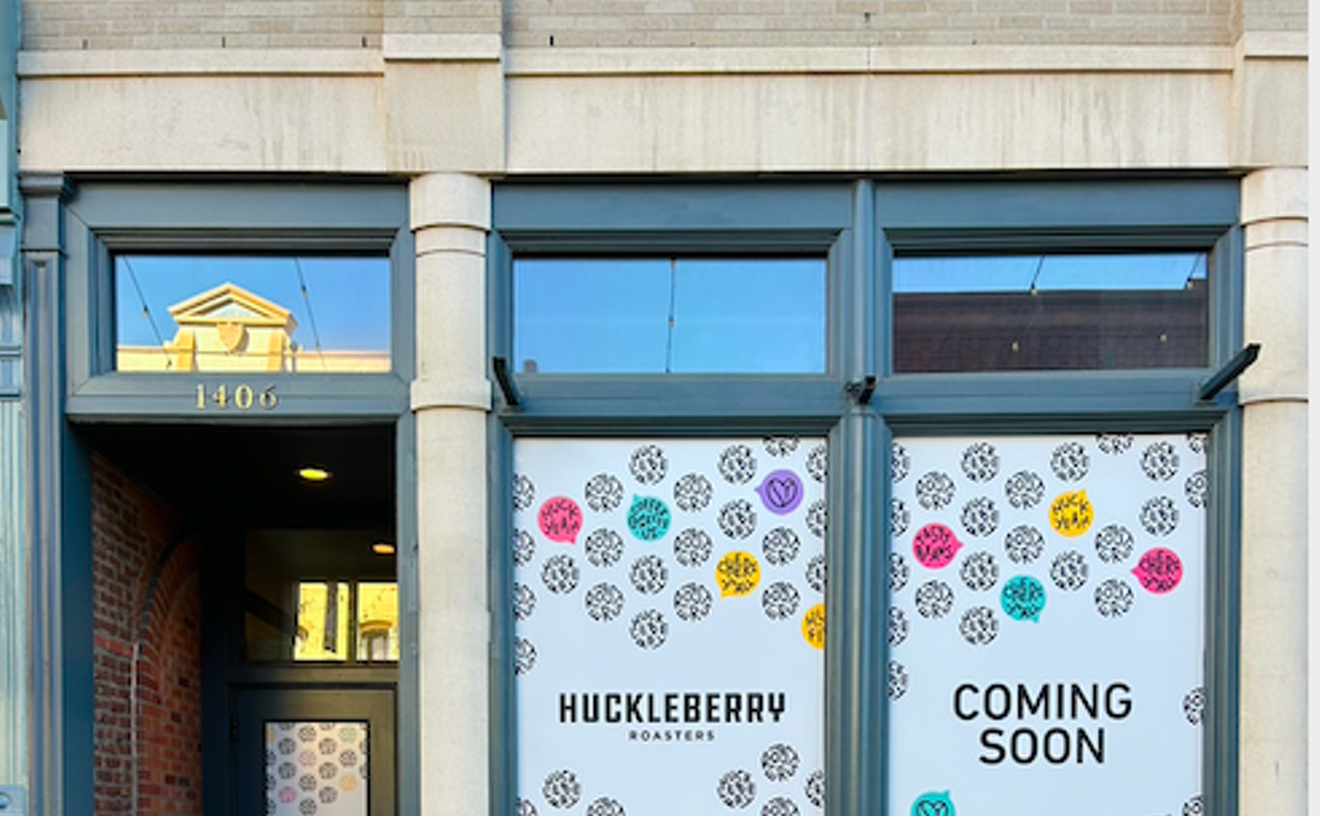It's a warm March morning in Boulder, and nearly all of the seats at Dry Storage bakery and cafe, both inside and out, are filled with people noshing, sipping coffee and chatting. Kelly Whitaker, whose Id Est Hospitality Group is behind Dry Storage, as well as Basta in Boulder and Brutø/BØH and the Wolf's Tailor in Denver, is waiting in line to order a drink — a refreshing blend of iced espresso, tonic and yuzu.
A man gets up from his table and asks, "Are you the chef?"
"Yes," Whitaker quietly replies.
"This is incredible, it's genius," the man says, pointing to the smørrebrød, a slice of Danish rye made with an Outer Range beer porridge and topped with house made cultured butter, smoked salmon, house fermented beets, dill and fingerling potato chips.
Whitaker thanks the man, who returns to his seat, not aware of all the thought and work that went into that piece of bread and what's on top. Which is exactly the point. "It's just delicious," Whitaker explains. "You can't argue with delicious.... Rather than try to educate the world, I'd rather offer an experience that leaves someone saying, 'Oh, my God, this is incredible, how do I get more of that?' Education is a long thing we're committed to over many years. Right now, I just want to pique people's interest."
But in reality, he wants to do much more than that. Dry Storage isn't just a bakery and cafe; it's a grain company on a mission to help change the world's food systems. And Id Est is not a typical hospitality group; its restaurants act as a proving ground for Whitaker's far-reaching vision.
After working as a line cook in Los Angeles, Whitaker moved to Boulder and opened Basta, his first restaurant, in 2010. "For the past decade, I've really been trying to figure out what it means to have Colorado food and cuisine," he says.
Boulder had long been known as a leader in the farm-to-table movement and local sourcing, but Whitaker saw a gap. "We have the best farms in Boulder County — amazing. But the reality is that most of the farmland around Boulder is not growing local, organic, fresh farmers' market produce," he notes. "We live in a bubble, and that bubble allows us to enjoy our farmers' market in Boulder. But if we want real impact, real change, we need to think about a bigger thing. And that's what I got focused on."
That bigger thing: grains, which account for 51 percent of the world's caloric intake, Whitaker says. On a local level, though, grains offer a way for him to support Colorado farms year-round. While seasonal produce peaks in the spring and summer, grains are harvested once a year and can be kept in a silo and used on an ongoing basis. They also speak to the state's agricultural history. "Colorado was founded on wheat," Whitaker adds. "Grain is a crop that unlocks so much for Colorado in terms of farming and value add for farmers."
While supporting local farms is a large part of the motivation behind Dry Storage, Whitaker always comes back to chefs and the quality of the food they're serving. "We're creating flavor, not just flour," he says. "Flour happens to be the first thing; I don't think it's the last thing. We're just scratching the surface on heirloom grains — the range that they can actually produce."
But flour offers an entry point. "Every single restaurant uses flour," he notes. Think about roux, the flour-and-water mixture used to thicken sauces. In the United States, mass-produced all-purpose flour is the standard in most kitchens, restaurants included. "Why shouldn't that be something better?" Whitaker asks. "Why would you start [your roux] with lifeless, tasteless, no-nutrition dead flour?"
Dry Storage got its first official test run around four years ago, when chef and restaurateur Alex Seidel (of Fruition, Mercantile and Chook Charcoal Chicken) introduced Whitaker to Sarah and Michael Jones of Jones Farms Organics in the San Luis Valley. The farm's main crop is potatoes, and at the time, the Joneses were growing a cover crop, Ryman rye, between harvests. Whitaker was able to persuade them to replace Ryman rye with heirloom grains.
The farm planted fifty acres that first year. "We weren't going to have a company unless the grain grew," Whitaker remembers. "I didn't even incorporate [Dry Storage] until after Sarah called me and said, 'We're going to have a harvest.'"
That first harvest was just one of many challenges, from learning about the supply chain and processing, to getting more familiar with how to talk to and negotiate with farmers, to navigating nature's curveballs, including fires and unseasonably warm winters that affect the crops. "The story of all of this, like most startups, is a massive amount of failure," Whitaker admits.
But through trial and error and consistent curiosity and innovation, Whitaker and his team have grown Dry Storage step by step. They've been supported by a community of millers that includes James Brown, of Barton Springs Mill in Austin, and Glen Roberts, the founder of Charleston-based Anson Mills. Dry Storage now has 300 acres of regenerative farm contracts and a facility with two mills located about five minutes from the bakery and cafe.
Its latest win: a distribution partnership with What Chefs Want, a wholesale food supplier. With this deal, Dry Storage flour is now available to chefs in ten states. "My motive is chefs," Whitaker says. Although the public can buy flour at the Boulder cafe and online, Whitaker knows that in order to make a real impact, he needs to prove that using products like Dry Storage flour and embracing a zero-waste approach can result in a profitable business model.
Which leads back to his restaurants. There is a learning curve when it comes to using whole-grain flour. Unlike most mills, Dry Storage focuses on single varietals, each with its own flavor profile and uses. Chefs are used to purchasing flour with a specific use — all-purpose, bread, pastry. The single varietal flours also don't behave the same way as mass-produced flour; it took a long time to perfect the loaves and pastries served at Dry Storage. But the impact on flavor is more than worth it, Whitaker reiterates, and all of the Id Est group's eateries act as research and development for the mill's products — a lab that most small mills don't have.
Whitaker is also rethinking how hospitality groups work. He's eschewed some traditional roles in lieu of titles like director of fermentation, a position filled by Mara King, co-founder of fermented food business Ozuké (which she recently sold) and a world-renowned leader on the topic. She's also currently heading up operations at the mill. "When you have a grain focus, you have to bring in fermentation," King explains, "and you're not doing it because it's trendy. You're doing it because it's necessary and it makes sense, and it's something that we've learned as human beings over a long period of time in practice."
The pumpkin millet miso soup that's currently on the menu at Dry Storage is King's creation. Using pumpkin mixed with golden millet from Golden Prairie outside of Fort Collins and koji — a mold used extensively in East Asia to create flavor in products like soy sauce — grown on Anson Mills grits, "we're creating our own sort of miso using local ingredients," she says.
That kind of experimentation is happening at the seventeen-seat Brutø as well, where executive chef Michael Diaz de Leon focuses largely on another grain — corn — and is exploring such concoctions as mezcal mirin.
The Wolf's Tailor, which opened in Denver in 2018, has been taking a zero-waste approach since day one that incorporates fermentation and other techniques from around the world in order to use local ingredients more effectively. Still, some of its operations remained rooted in traditional ideas. Then the pandemic challenged the status quo in the restaurant business, opening even Whitaker's own partners to a new perspective.
The result: Guests are now limited to fifty per night instead of upwards of 200, taking some pressure off of staff and allowing more bandwidth for focusing on the eatery's zero-waste mission. "With the mill, it just became apparent that we need to grow this thing out," Whitaker explains. "If we're trying to say something in the restaurant, I don't need 1,000 seats to say that. But with this movement, we need to grow it out in a way that impacts more soil, more farmers."
Despite the lower volume, the approach has had a positive impact on the restaurant's profit-and-loss statement. "What we're trying to prove is that you can put the money into good food systems and good people systems and treat people a certain way," Whitaker says. "We've been able to show through the pandemic that this is a possible thing. It's absolutely a viable thing. How do we teach that now?"
The answer: by example.
Alhough Whitaker has connected with people all over the world — including the team at the world-famous Noma in Copenhagen — to engage them in conversations about changing food systems, the Dry Storage mission is rooted locally. One of Whitaker's first flour customers was Frasca. Amos Watts at the Fifth String in Denver was an early adopter and continues to be one of the company's biggest ambassadors. The Family Jones uses Dry Storage rye in its spirits. The newly opened Westbound & Down Mill in Lafayette is using Dry Storage flour in its pizza and Dry Storage grain in its beers. "It's going to be soon, everywhere you go, you're going to be touching Dry Storage grain in some way, shape or form," Whitaker says.
And in twenty years or so, he thinks that the impact of this kind of work will change the way everyone sees grains. "You see it now all over the country," Whitaker says. "There are micro mills popping up everywhere. Farmers are growing more of these types of crops in rotation with their other crops. The movement is starting to ignite."
He compares it to coffee, which used to be dominated by cans of pre-ground Folger's. "Now everyone has a coffee grinder at home," he notes. "Flour or grains will be the same. People will mill flour at their house. You'll be able to take, in a bulk section somewhere, a whole grain and grind it down in the grocery store. It'll shift...people's thinking about grains is going to evolve." Especially as the gluten-averse public learns more about the benefits of freshly milled flour, which, unlike commercially produced flour, has living microbes and contains valuable nutrients that can be absorbed by the body thanks to fermentation.
Whitaker's vision for a mill of the future includes additions like a koji room and distilling components. He's continually looking forward, both locally and globally, all while running some of the best restaurants in the state, if not the country.
"I'd like to go back to just being a cook and not an advocate, not trying to solve the world's problems," Whitaker concludes. "But it's on my doorstep. It's unavoidable."
[
{
"name": "Air - MediumRectangle - Inline Content - Mobile Display Size",
"component": "12017618",
"insertPoint": "2",
"requiredCountToDisplay": "2"
},{
"name": "Editor Picks",
"component": "17242653",
"insertPoint": "4",
"requiredCountToDisplay": "1"
},{
"name": "Inline Links",
"component": "18838239",
"insertPoint": "8th",
"startingPoint": 8,
"requiredCountToDisplay": "7",
"maxInsertions": 25
},{
"name": "Air - MediumRectangle - Combo - Inline Content",
"component": "17261320",
"insertPoint": "8th",
"startingPoint": 8,
"requiredCountToDisplay": "7",
"maxInsertions": 25
},{
"name": "Inline Links",
"component": "18838239",
"insertPoint": "8th",
"startingPoint": 12,
"requiredCountToDisplay": "11",
"maxInsertions": 25
},{
"name": "Air - Leaderboard Tower - Combo - Inline Content",
"component": "17261321",
"insertPoint": "8th",
"startingPoint": 12,
"requiredCountToDisplay": "11",
"maxInsertions": 25
}
]

